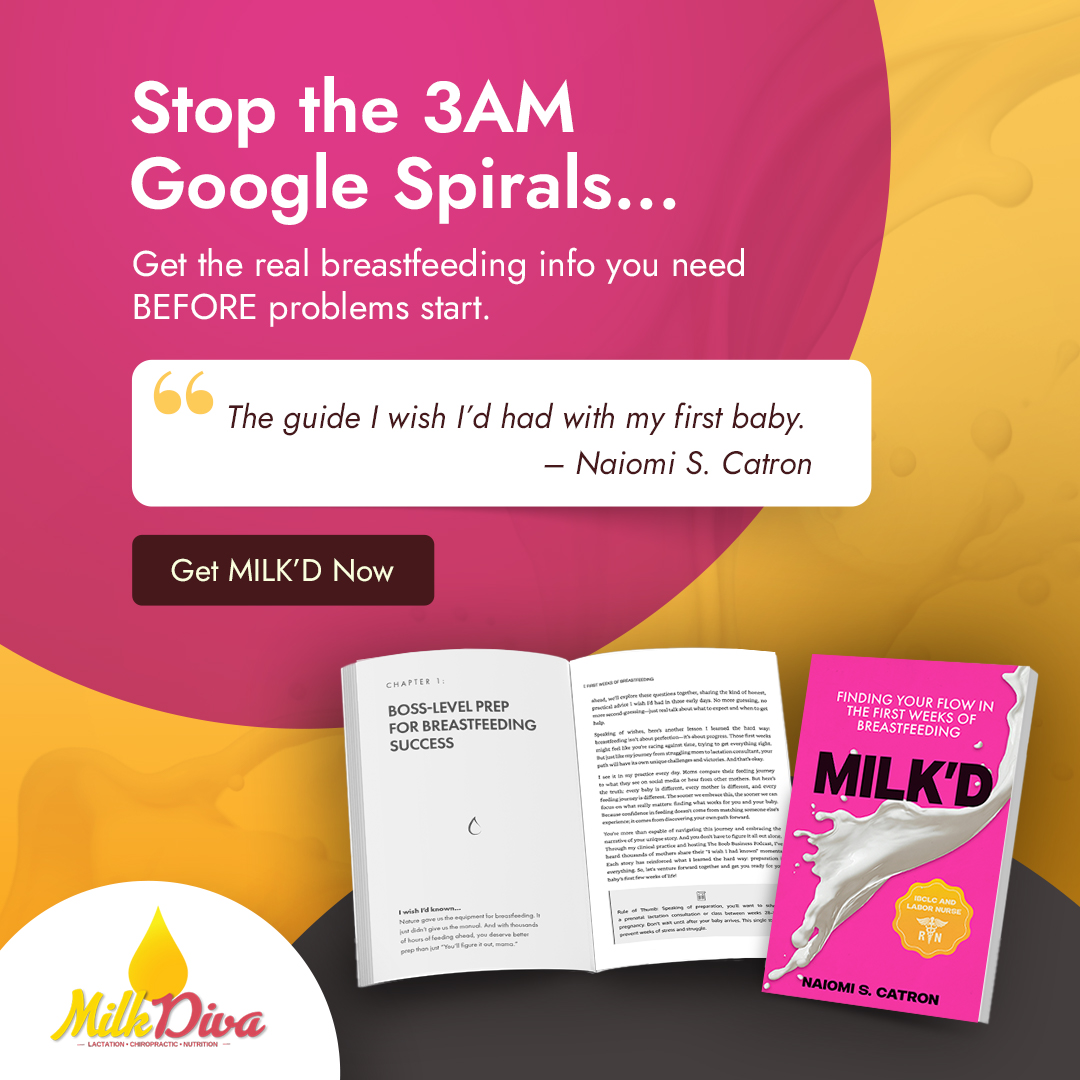
If you’re nursing or pumping and wondering, “Is my baby getting enough milk?”- you’re not alone. Nearly every mom who visits us at Milk Diva has asked this question, and it’s completely understandable. In the whirlwind of early parenthood, with round-the-clock feeding, burping, swaddling, and very little sleep, it can be hard to tell how much your baby is actually taking in.
Breastfeeding is a learned skill for both you and your baby. Despite how effortless it may look online, it doesn’t always “click” right away. That’s why it’s important to pay attention to patterns and signs that your baby is feeding effectively.
Feeding Frequency
In the first few weeks, babies typically nurse 8 to 12 times in a 24-hour period; about every 2-3 hours, day and night. Cluster feeding (frequent feeding sessions close together) is also common, especially during growth spurts. If your baby tends to sleep through feedings early on, it’s important to gently wake them to nurse regularly to support weight gain and maintain your milk supply.
Latch and Milk Transfer
A deep, comfortable latch is essential for your baby to get enough milk. Signs of effective feeding include hearing your baby swallow, seeing steady jaw movement, and noticing a calm, focused demeanor while feeding.
If you're hearing clicking, experiencing ongoing nipple pain, or noticing that your baby seems frustrated at the breast, these could be signs of ineffective milk transfer. That’s where we come in, our lactation consultants can assess latch and feeding to help you make any needed adjustments.
Diaper Output: Your Daily Milk Indicator
Diapers offer an easy, daily way to track whether your baby is getting enough milk:
Days 1-2: About one wet diaper and one to two poops per day.
Days 3-4: At least three wet diapers, with stools transitioning from dark meconium to greenish-yellow.
Day 5 and beyond: At least six wet diapers and three or more yellow, seedy, soft stools per day.
Tracking Growth Over Time
While diaper output helps in the short term, weight gain is the best long-term indicator of milk intake. Pediatricians routinely check weight at well visits, but don’t hesitate to request more frequent weigh-ins if you have concerns.
Babies usually regain their birth weight by 10-14 days.
After that, they typically gain 5-7 ounces per week during the early months.
If your baby isn’t meeting these milestones, it could point to feeding challenges that we can help address.
Let’s Make Sure Your Baby Is Getting What They Need
Every baby is different. Every feeding journey is unique. And every mom deserves support that’s informed, gentle, and judgement-free. At Milk Diva, we don’t just support breastfeeding - we support you. Our team of certified lactation consultants and newborn experts knows the rollercoaster of early parenthood firsthand. Whether you’re exclusively nursing, pumping, combo feeding, or just trying to figure it all out, we meet you where you are.
Schedule a consultation with Milk Diva and get expert support from a team that truly understands newborn care and feeding. Schedule a evaluation here, visit our office in Austin, Texas, or call (512) 846-6455 to book an appointment today.






